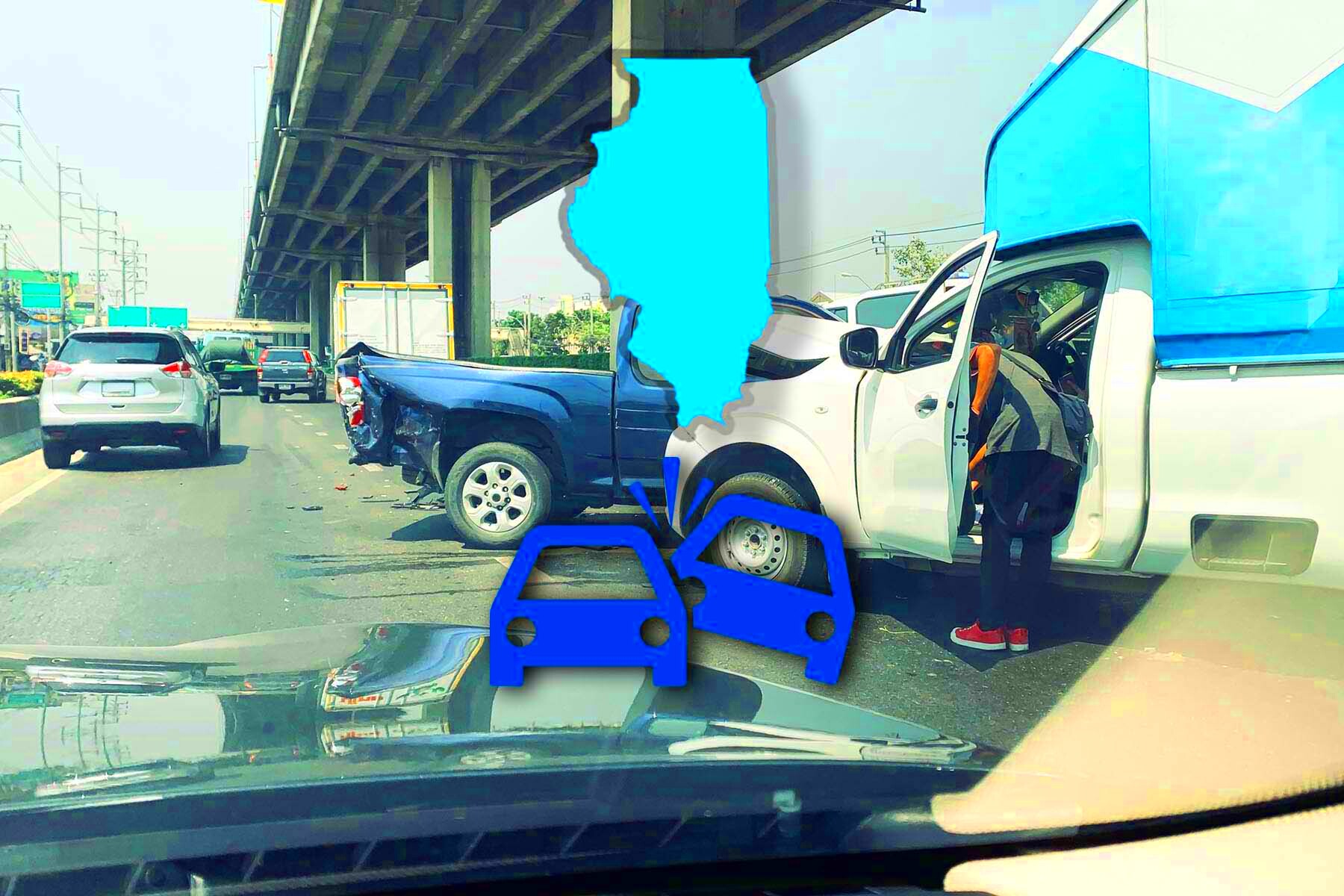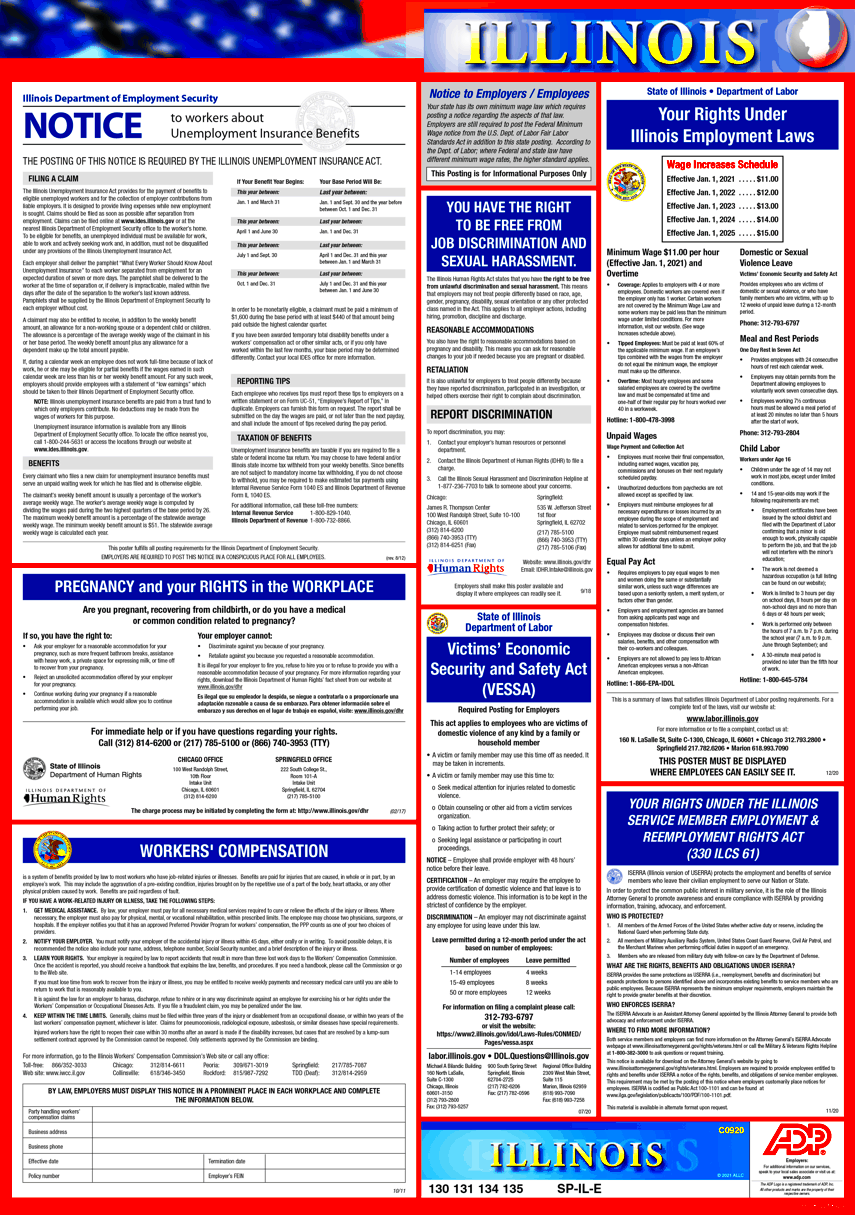Key Points of Hit and Run Laws in Illinois
Hit and run infractions are grave breaches that may result in harsh judicial repercussions. The intention of such statutes in Illinois is safeguarding victims and holding drivers liable. If you happen to be caught up in a collision, it is crucial to know what defines hit-and-run as well as your obligations. This understanding could assist one in maneuvering the legal maze better.
Defining a Hit and Run Incident

A hit-and-run happens when a driver involved in an accident flees the scene without giving their particulars or helping those who have been harmed. The following are some important things so that you can comprehend what makes a hit and run:
- Involvement in an Accident: This can be a collision with another vehicle, a pedestrian, or property.
- Leaving the Scene: The driver must leave the location of the accident without exchanging information or offering help.
- Failure to Report: Not reporting the accident to law enforcement can also constitute a hit and run.
In Illinois, hit and run laws can be triggered by both moving violations and property damage. A small fender bender or serious accident, no matter the size or type, can have serious implications.
Legal Consequences for Drivers

In Illinois, the legal consequences for a hit and run may be serious, actual facts are taken into consideration. Here is what you must understand:
- Misdemeanor Charges: If the accident only causes property damage, the driver may face misdemeanor charges, which can lead to fines and potential jail time.
- Felony Charges: If the hit and run results in injuries or fatalities, the driver can face felony charges. This may result in more substantial penalties, including imprisonment.
In addition to being charged with a crime, the driver might also be responsible for civil damages. In other words, victims can seek compensation for their medical bills, damage to their property, and emotional distress.
Grasping the legal ramifications might aid motorists in making judicious choices when under pressure. It should be noted that, at all times, it is better to remain on site, report the accident and liaise with officials.
Importance of Reporting the Incident
It’s not only necessary according to law, but also for your own protection that you should report about a hit and run incident. By going ahead to report this case, you help serve justice and at the same time protect yourself as a victim. Therefore, let us look at the reasons as to why it is important to notify a hit-and-run accident:
- Legal Requirement: In Illinois, the law requires you to report any accident that results in injury or property damage. Failing to do so can lead to penalties.
- Gathering Evidence: Reporting the incident immediately helps in collecting vital evidence, such as eyewitness accounts and police reports, which can be crucial for your case.
- Insurance Claims: If you want to file a claim with your insurance company, having a police report is often necessary. This documentation can support your claim for damages.
- Preventing Future Incidents: Reporting helps authorities track patterns of reckless driving, potentially preventing further accidents.
Indeed, investing some moments into reporting a hit and run incident can lead to either positive or negative consequences depending on what happens afterwards hence this should be taken into consideration.
Factors Influencing Penalties
In Illinois, the punishments for hit-and-run incidents differ significantly depending on some reasons. Comprehending these variables can provide you with a better notion of what to anticipate should you be charged. Below are a few notable factors that affect the penalties:
- Severity of the Accident: Accidents causing injuries or fatalities usually lead to more severe penalties compared to those resulting only in property damage.
- Prior Criminal Record: If the driver has a history of similar offenses, the court may impose harsher penalties.
- Cooperation with Authorities: Demonstrating that you attempted to cooperate with law enforcement can sometimes result in reduced penalties.
- State of Mind: Whether the driver acted recklessly or intentionally can impact the severity of the charges.
Anyone involved in a hit and run incident should understand these factors since they significantly influence the legal result.
Steps to Take After a Hit and Run
Wondering what to do next after being involved in a hit and run accident? The following guide will help you find your way through this difficult moment:
- Stay Calm: Take a moment to gather your thoughts and assess the situation. Staying calm will help you think clearly.
- Check for Injuries: Make sure you and any passengers are okay. If anyone is injured, call 911 immediately.
- Gather Information: Write down details about the incident, such as the time, location, and any descriptions of the other vehicle.
- Speak to Witnesses: If there are witnesses, ask for their contact information and accounts of what they saw.
- Report to the Police: Call the police and file a report. Provide them with all the information you’ve gathered.
- Notify Your Insurance: Inform your insurance company about the incident as soon as possible to start the claims process.
- Seek Legal Advice: Consider consulting with a lawyer to understand your rights and options moving forward.
Taking these measures may assist in safeguarding your privileges and guaranteeing that you deal with the scenario in the most suitable manner.
Insurance Considerations Following a Hit and Run
Hit and runs can be quite hard to deal with, particularly when it comes to insurance issues. It is important to know how this process works in order to get the right amount of compensation for your loss. The following are some important insurance factors that you need to keep in mind:
- Reporting the Incident: Always report the hit and run to your insurance company as soon as possible. Many insurers require prompt reporting for claims to be valid.
- Types of Coverage: Check your policy for coverage types, such as uninsured motorist coverage, which can help cover damages from a hit and run.
- Deductibles: Be aware of any deductibles that may apply to your claim. Understanding these costs can help you budget for repairs or medical expenses.
- Claim Process: Follow your insurer’s guidelines for filing a claim. They may require specific documentation, like a police report or photos of the damage.
- Possible Rate Increases: Be prepared for the possibility of increased premiums after filing a claim, as insurers may raise rates for accidents, even if you weren’t at fault.
These insurance considerations can help you deal with the aftermath of a hit and run crash and obtain proper compensation for your losses.
Common Defenses Against Hit and Run Charges
In case you are charged with a hit-and-run, it is important to recognize some of the typical defenses that people use. The following are common defenses:
- Not Involved in the Accident: If you can prove you were not involved in the accident, it can be a strong defense.
- Lack of Intent: Showing that you did not intend to flee the scene can be used as a defense, especially if you were unaware of the accident.
- Confusion or Panic: If you were in a state of panic or confusion, this can sometimes mitigate the severity of the charges against you.
- Identification Issues: If there were errors in identifying you as the driver, this could work in your favor.
If you want to know how to defend yourself against a traffic violation, it would be prudent if you consulted with an attorney who deals with such cases.
Frequently Asked Questions About Hit and Run Laws
Grasping the hit-and-run regulations may seem hard but there is no need to panic because it’s understandable if you have inquiries. The following are some of the commonly asked questions to help clarify on regular worries:
- What should I do if I’m a victim of a hit and run? Immediately report the incident to the police and gather as much information as possible about the other vehicle.
- What are the penalties for hit and run in Illinois? Penalties can range from fines and license suspension for minor offenses to significant prison time for serious injuries or fatalities.
- Can I file an insurance claim for a hit and run? Yes, you can file a claim, particularly if you have uninsured motorist coverage, which can cover damages from hit and runs.
- Will my insurance rates go up if I file a claim? There’s a possibility your rates may increase, as insurers often adjust premiums based on claims history.
The complexities surrounding hit and run laws may be clarified by these FAQs, which ultimately helps you understand better your rights and obligations.
Conclusion on Hit and Run Laws in Illinois
Conclusively, it is important for motorists and accident victims in Illinois to understand hit and run laws. The main purpose of these laws is to enhance responsibility and ensure that victims receive necessary aid and justice. In case you are involved in a hit and run, it is important to report the occurrence immediately, gather as much evidence as possible, and know your rights with regards to insurance and litigation. The impact on the criminals involved emphasizes the gravity of this behavior, while knowledge of common defenses can help those accused manage their court issues. It is very important to know and be ready in order to change how these situations are perceived hence resulting into safer roads for all.


